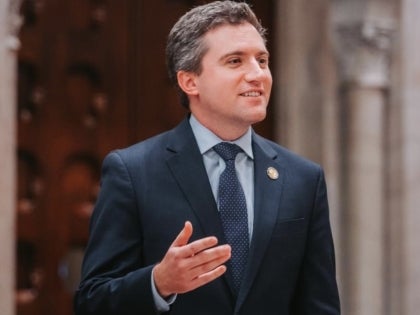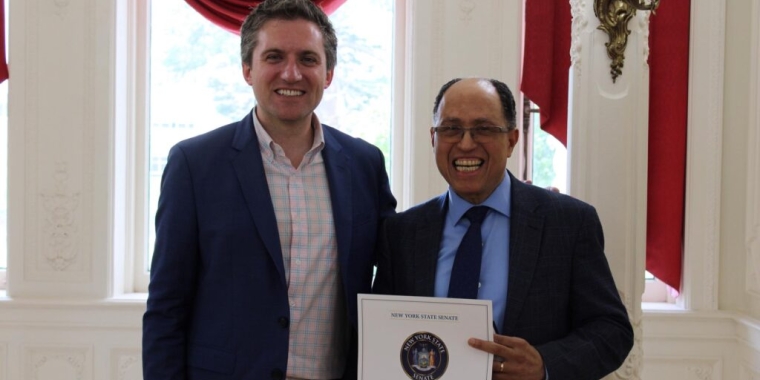
NY phasing out segregated work programs for disabled people
In New York state, it is legal to pay disabled workers less than the minimum wage in programs once known as “sheltered workshops,” but the system is slowly being phased out, and it’s facing criticism from some elected officials who want to see sub-minimum wage pay completely eliminated.
For years, officials with the Office for People With Developmental Disabilities, which oversees the licensing program that permits the workshops, have made gradual changes to cut funding and deprioritize the separated workshop model, instead promoting an “employment first” model that asks agencies that run work programs for disabled people to focus instead on full-wage work and integration of abled and disabled workers, or shift those who cannot do full-wage, integrated work into day programs focused on personal development.
The plan, as explained by an OPWDD liaison to the Times and a group of sheltered workshop employees in Watertown in 2019, asked existing workshops to phase out their sub-minimum wage pay and segregation of disabled staff. At the time, there were 8,020 disabled workers working at 112 workshops across New York.
The timeline laid out by that liaison has shifted. A spokesperson for OPWDD said the agency stopped allowing new sheltered workshops in 2013, and funding for the program was ended in 2021.
“OPWDD assisted people during the seven-year transition period to identify community employment opportunities and worked with sheltered workshop providers to transition to competitive and integrated businesses,” the spokesperson said. “OPWDD and several of our service providers currently operate prevocational programs, a Medicaid service option, that prepare people to succeed in integrated and competitive employment by teaching necessary job-related skills and providing vocational experiences while also earning pay in some circumstances.”
One local group maintains two of those programs in Watertown and Ogdensburg, The Arc Jefferson-St. Lawrence, with contracts to pack equipment kits for New York Air Brake and with various other small local businesses. It’s a program that transitioned from the “sheltered workshop” model to a more integrated work environment, where people with and without disabilities work side-by-side.
The spokesperson said the Arc Jefferson-St. Lawrence is funded for site-based prevocational services that are provided in an integrated setting, rather than the separated model the workshops previously operated under.
The Arc Jefferson-St. Lawrence provides a number of services targeted to disabled people, from work training and their employment programs, to prevocational training and day programs that are focused more on daily caregiving and personal development.
Senator James Skoufis, D-Middletown, and Assemblyman Phillip G. Steck, D-Schenectady, both carry a bill in the state legislature that would eliminate the parts of state labor law that permit employers to pay staff with physical or mental disabilities less than the state minimum wage. It would essentially speed up the policy changes from OPWDD.
Both the Senate and Assembly bills have a number of co-sponsors, all Democrats.
In a statement shared with the Times, Skoufis said that 16 other states in the U.S. have already banned sub-minimum wage work for disabled workers, including New Hampshire and Alaska.
“My bill seeks to follow their lead, and address the unequal access and treatment of Americans with disabilities,” he said. “A report from the U.S. Government Accountability Office last year found that of the 120,000 workers employed under the federal program, half earned less than $3.50 an hour.”
Quinell-Gayle said The Arc Jefferson – St. Lawrence has a policy to not comment on staff pay rates.
“However, the agency follows and exceeds the strict guidelines given by NYS to protect the people we support, so they can keep the option to work if they want,” she said.
Skoufis said there have been a number of laws passed at the state and federal level since the 1938 New Deal bill, many of which he said should have ended the sub-minimum pay practice, but those laws all included exemptions for the sheltered workshop model.
Ultimately, Skoufis said there’s a new modern understanding of what disabled people are able to achieve in the workplace, and New York’s laws need to be updated to reflect that.
“Wages and opportunity should reflect the growing awareness of what those of diverse experiences and abilities can bring to the workforce,” Skoufis said. “The federal law that allowed the practice of paying sub-minimum wage was passed by Congress in 1938, and I think it’s fair to say that our understanding has progressed since then. So should our laws.”
It’s got the support of at least one advocacy group, the New York Association on Independent Living, who in 2023 issued a memo in support of the Skoufis/Steck bill.
“If employers and rehabilitation agencies no longer had the option of paying people with disabilities less than the minimum wage, they would be forced to place people in jobs that fit their skills and abilities so that they could truly earn at least the minimum wage,” the memo reads.
“NYAIL urges swift passage of (the Skoufis/Steck bill) so all people with disabilities can fulfill their potential and become contributing members of their communities rather than continuing to be victims of exploitation,” the memo concludes.
The Skoufis/Steck law has been introduced in the Legislature every session since 2017. Skoufis carried it as an Assemblymember in 2017, and then introduced it in the Senate for the first time in 2019. It has never made it out of committee in either chamber of the state legislature.
